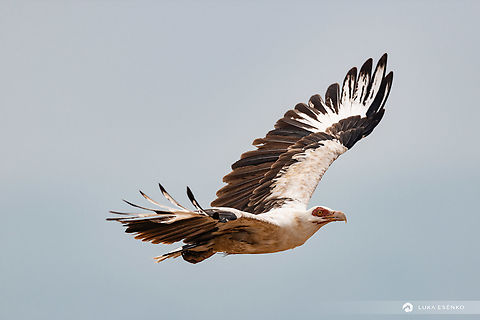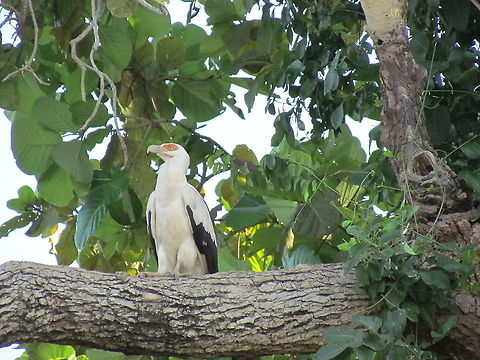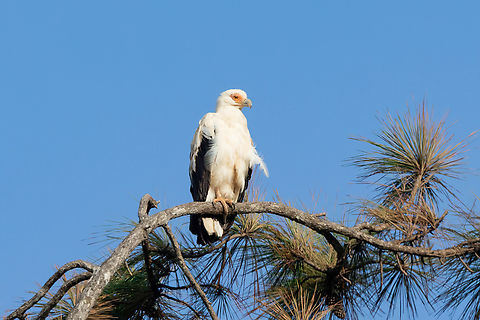
Appearance
This is an unmistakable bird as an adult. At 1.2-1.5 kg, 60 cm and 150 cm across the wings, this is the smallest Old World vulture. Its plumage is all white except for black areas in its wings. It has a red patch around the eye. The immature, which takes 5 years to mature, is brown with a yellow eye patch. In flight this species resembles an eagle more than a typical vulture, and it can sustain flapping flight, so it does not depend on thermals.
Habitat
It breeds in forest and savannah across sub-Saharan Africa, usually near water, its range coinciding with that of the Oil Palm. It is quite approachable, like many African vultures, and can be seen near habitation, even on large hotel lawns in the tourist areas of countries like The Gambia.
Defense
Birds may form loose colonies. A single egg is incubated in a bulky stick nest in a tree for about six weeks.References:
Some text fragments are auto parsed from Wikipedia.